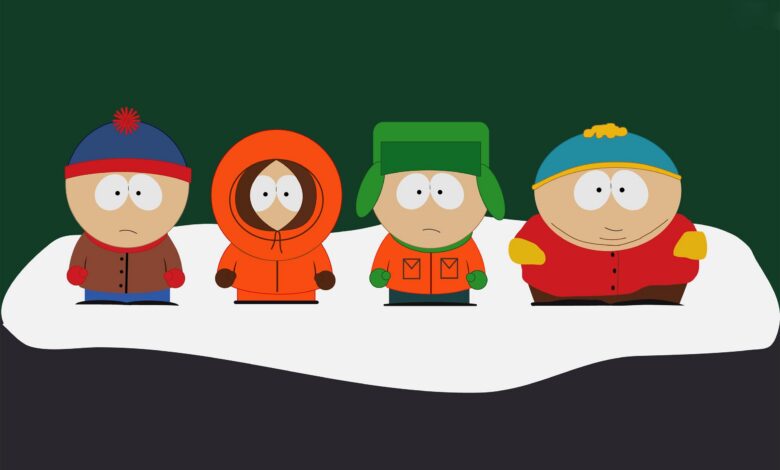Why ‘Heat’s’ Director Calls ‘South Park’ Today’s Political Resistance

If you asked someone to describe the political and cultural resistance of the 1960s, images of Woodstock, mass protests, and figures like Bobby Kennedy would come to mind. Now, ask Michael Mann, the legendary and meticulous director of classics like ‘Heat’ and ‘The Last of the Mohicans’, what the equivalent is in 2025.
His answer? ‘South Park’.
In a statement that is making waves, made during the recent Lumiere Festival in Lyon, Mann suggested that, today, “the vanguard and the resistance are in ‘South Park’.” In a post-streaming world, fractured by ideological bubbles and dominated by risk-averse media, this claim isn’t just praise for a cartoon; it’s a profound and uncomfortable diagnosis of the state of our culture.
The Unexpected Comparison: The 60s vs. Comedy Central
Mann’s analysis draws a direct parallel to one of the most turbulent periods in American history. “What’s going on now is like the ’60s in America, in a sense,” the director stated. “Except that the vanguard and the resistance today are in ‘South Park’.”
Coming from a filmmaker known for his dark crime dramas and near-documentary realism, choosing a satirical cartoon as the bastion of modern counterculture is surprising, to say the least. Mann essentially argues that while the 60s had a popular revolution in the streets, in music, and in politics, today’s most prominent ideological battle is being fought… by Cartman, Stan, Kyle, and Kenny.
But why would Mann, one of Hollywood’s most serious directors, specifically point to this 28-year-old animated series? The answer lies in what ‘South Park’ decided to stop being.
The End of Cynicism and the Start of Direct Satire
Michael Mann’s statement doesn’t come out of nowhere. ‘South Park’ creators, Trey Parker and Matt Stone, long ago abandoned the era-defining centrist cynicism encapsulated in the famous “Douche and Turd” episode, which essentially argued that both political sides were equally bad.
In recent seasons (especially 27 and 28), the show has changed its tune. The satire is now targeted, aiming directly at the current President Donald Trump and his followers, even using the name “Donald ‘Saddam Hussein’ Trump” in its continuity.
This shift from a catch-all critique to a focused and relentless satire has not gone unnoticed. The show has faced public ire from the White House and boycott campaigns from conservative fans demanding its cancellation by Paramount.
In an era where many IPs and studios avoid controversy so as not to alienate parts of the audience, ‘South Park’ seems to be the only major entertainment franchise willing to poke the federal hornet’s nest with such intensity. As pointed out by the media covering Mann’s speech, not even late-night talk shows, like Jimmy Kimmel’s, have hit the administration with the same ferocity, despite silencing attempts by Trump’s FCC (Federal Communications Commission).
The Praise That Is Also a Fierce Critique
Here is the crucial point of Michael Mann’s analysis: if ‘South Park’ is the vanguard, what does that say about everyone else?
The director’s praise for the cartoon is, simultaneously, a scathing critique of the ineffectiveness of the “real” political and social resistance. Mann seems to suggest that while Parker and Stone are on the cultural front lines, the political leaders who should be organizing the opposition are failing dramatically.
In the absence of a unifying, Bobby Kennedy-style figure who can channel anti-government sentiment into organized and effective action, we just have a campaign being waged on Comedy Central. Satire becomes the primary form of resistance when the formal resistance seems lost or inept. We can easily not mince words, noting that while ‘South Park’ attacks, figures like Senate Minority Leader Chuck Schumer seem more focused on “becoming Donald Trump’s pen pal” than on leading an actual opposition.
Do We Need More Than Just Satire?
Michael Mann’s analysis is an acknowledgment of ‘South Park’s’ courage in an increasingly subdued and fearful media landscape. However, it also serves as a deeply uncomfortable warning for 2025.
As brilliant, necessary, and cathartic as satire may be, it shouldn’t be the only barrier between a democratic society and authoritarianism. If the situation is really “like the ’60s all over again,” history teaches us that counterculture alone is not enough. Grassroots movements, organization, and real political action are needed to change the course of things.
As Eric Cartman would probably say, we’re going to need more than just “lazy, smelly hippies” to save the planet this time. The question Mann’s speech leaves us with is: if comedians are our bravest soldiers, who exactly is leading the army?
